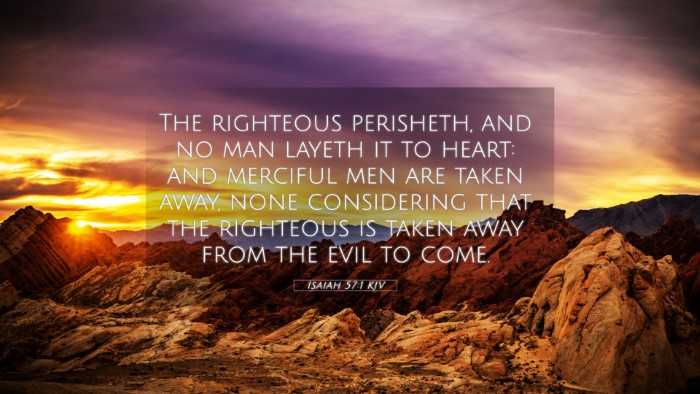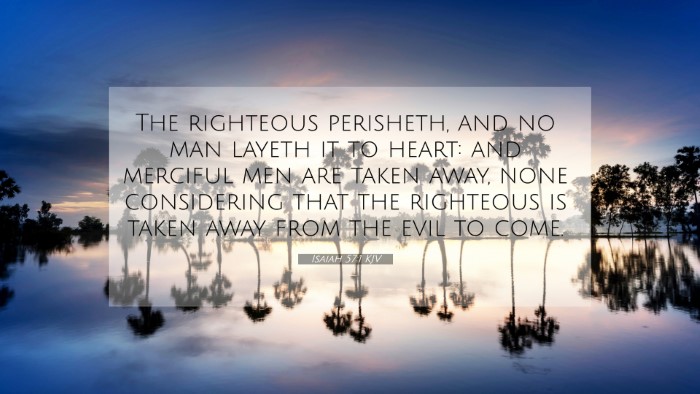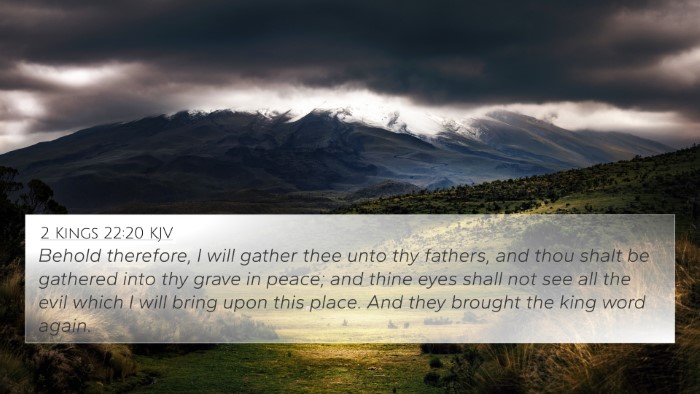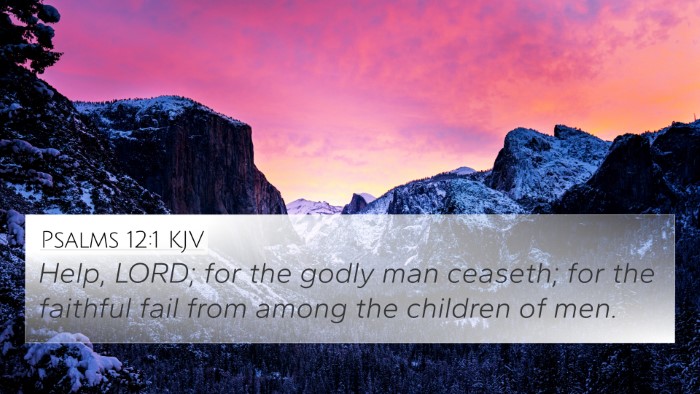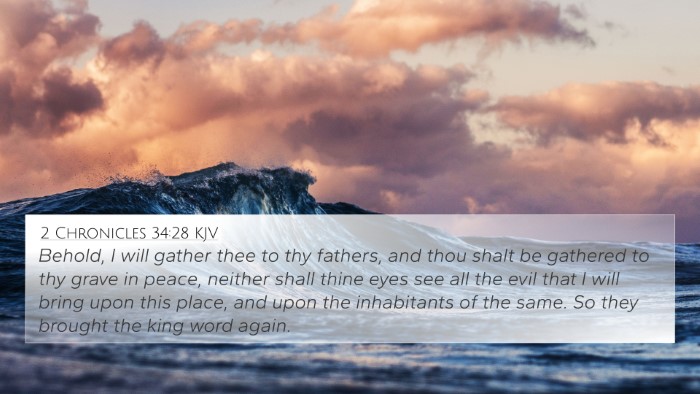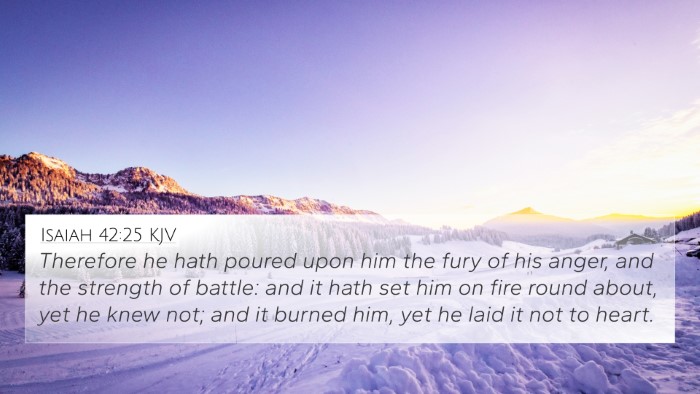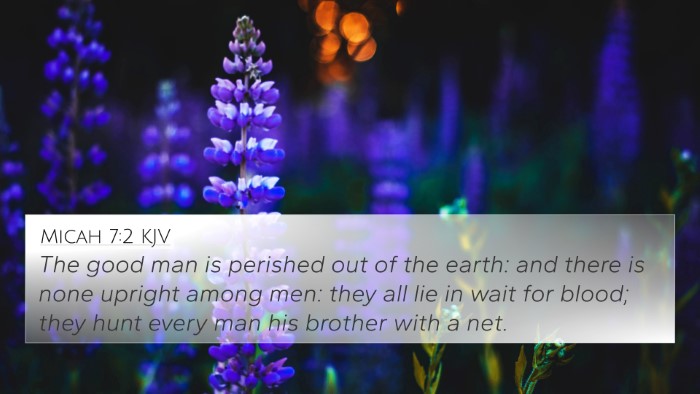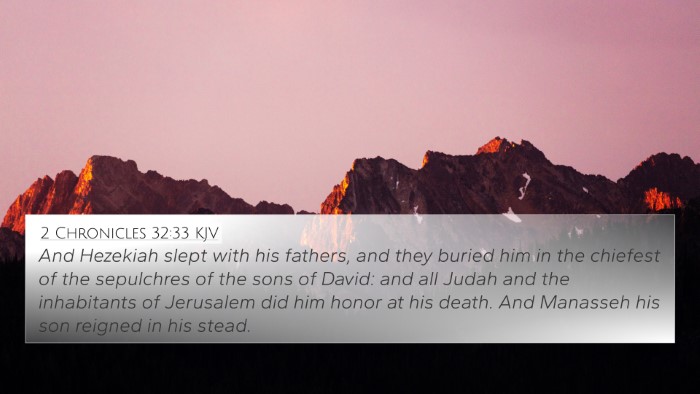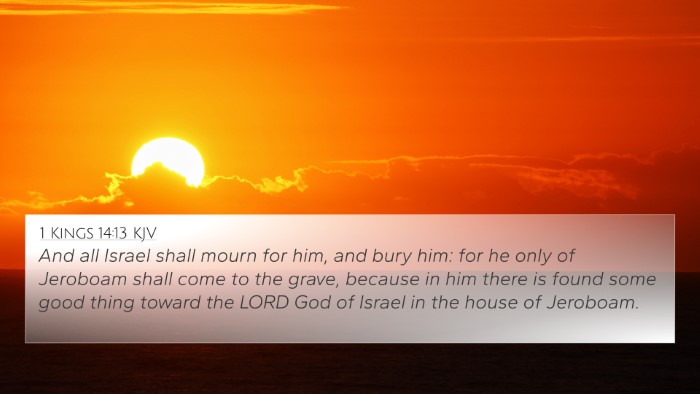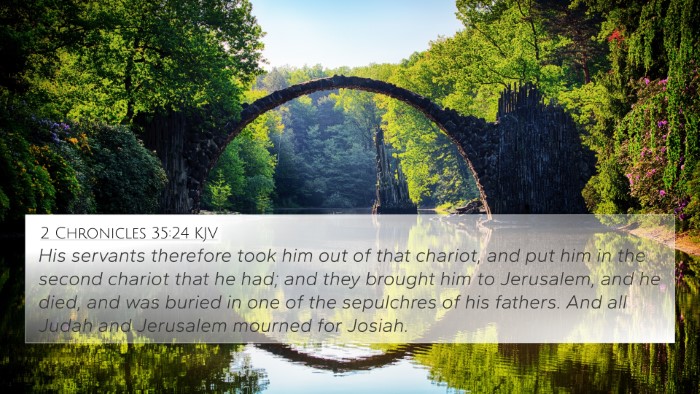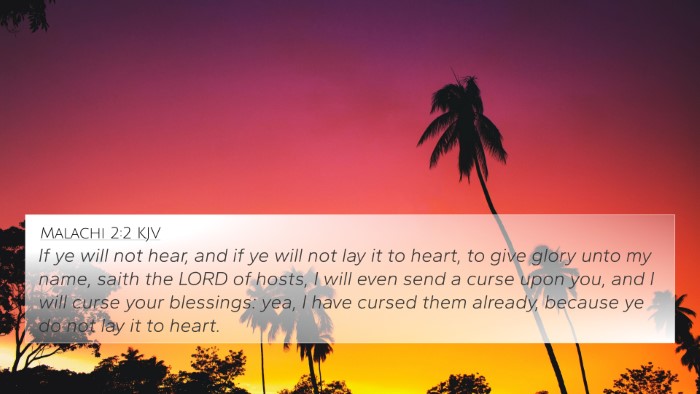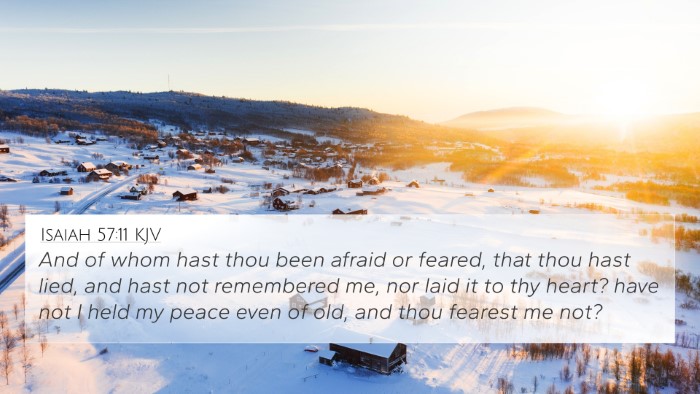Understanding Isaiah 57:1: Insights from Public Domain Commentaries
Verse: Isaiah 57:1
"The righteous perish, and no man layeth it to heart: and merciful men are taken away, none considering that the righteous is taken away from the evil to come."
Summary of Isaiah 57:1
This verse addresses the sorrowful reality of the righteous being taken away due to the impending judgment and evil that is to come upon the world. It reflects on the indifference of society towards the loss of the righteous, demonstrating a theme of neglect toward divine justice. The merciful are removed from this troubled existence, emphasizing God’s protection over them even in their absence.
Commentary Insights
-
Matthew Henry's Commentary:
Matthew Henry emphasizes that the disappearance of the righteous often goes unnoticed by society. This verse illustrates a time of great wickedness when those who are upright are removed, highlighting their importance in the world. He encourages understanding that their removal serves a protective purpose from future calamities.
-
Albert Barnes' Notes:
Barnes interprets this verse as a divine insight into the fate of the righteous. He points out that the removal of the righteous is not a punishment, but rather a mercy from God, preserving them from the evils that the world is about to face. This loss should stir hearts to reflection and recognition of the need for righteousness.
-
Adam Clarke's Commentary:
Clarke discusses the aspect of societal negligence regarding the fate of the righteous. He notes that the ‘merciful men’ referenced are sometimes taken away to safeguard them from the evils of a corrupt society. The idea is that God’s purpose may be beyond human understanding, urging a deeper contemplation of righteousness.
Bible Verse Cross-References
Isaiah 57:1 connects with several other Bible verses, which can enrich understanding through comparative Bible verse analysis. Here are some significant cross-references:
- Psalm 34:19: "Many are the afflictions of the righteous: but the Lord delivereth him out of them all."
- Revelation 14:13: "And I heard a voice from heaven saying unto me, Write, Blessed are the dead which die in the Lord from henceforth."
- Isaiah 52:12: "For ye shall not go out with haste, nor go by flight: for the Lord will go before you; and the God of Israel will be your rereward."
- 2 Corinthians 5:8: "We are confident, I say, and willing rather to be absent from the body, and to be present with the Lord."
- Philippians 1:21: "For to me to live is Christ, and to die is gain."
- Matthew 5:4: "Blessed are they that mourn: for they shall be comforted."
- John 16:33: "In the world ye shall have tribulation: but be of good cheer; I have overcome the world."
Thematic Bible Verse Connections
When examining Isaiah 57:1, it becomes clear that the themes of righteousness, divine justice, and the fate of the righteous echo through the scriptures. Here are some thematic connections:
- Righteous Suffering: The plight and eventual reward of the righteous are discussed throughout the Bible, linking the faithful's experiences in both the Old and New Testaments.
- Divine Protection: Just as the righteous are safeguarded from future evils in Isaiah, numerous passages comfort believers regarding God's protection.
- Mortality and Hope: The tension between human mortality and the hope of eternal life is a recurring theme, as illustrated by various verses including Revelation and Corinthians.
Tools for Bible Cross-Referencing
For those studying Isaiah 57:1, using tools for Bible cross-referencing can enhance understanding:
- Utilize a Bible concordance to find related verses based on keywords.
- Explore a Bible cross-reference guide to see how verses interact with one another.
- Engage in cross-reference Bible study to draw links between themes.
Conclusion
Isaiah 57:1 offers profound reflections on the nature of righteousness and divine mercy amidst societal neglect. By examining this verse alongside its cross-references and utilizing resources for Bible verse connections, individuals can deepen their understanding of God's message. Whether through comparative studies or thematic analysis, the insights garnered from Isaiah 57:1 resonate with the overarching narrative of redemption and grace found in the scriptures.

